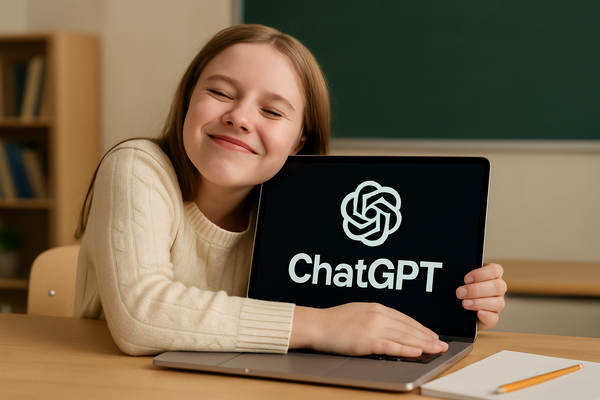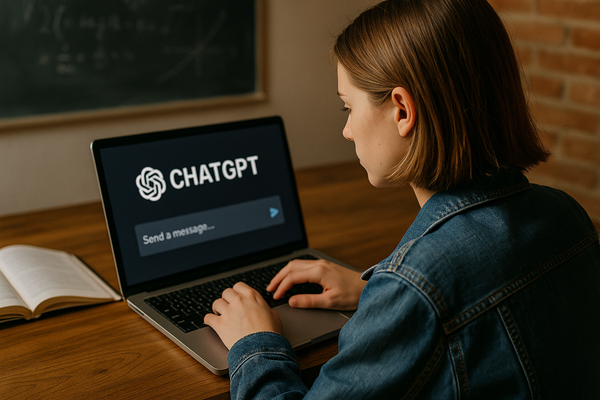Why We Need to STOP Hating on Distance Learning

Let’s all admit it: we’re going flipping crazy with this COVID bullshizer. From curbside pick-ups to awkward Zoom meets, it’s as if we’re living life on “pause”. But of all the adjustments we’ve had to make, guess which one’s taking the hardest hit? EDUCATION. Ya, I’m not going to sugar-coat it, folks. Fortunately, in COVID, online distance learning has been our saving grace.
And yes, that’s where I come in! I ensure that learning English online during COVID is a meaningful experience. I’m not just another face behind a screen -- I’m the fizzy energy drink your kid needs when they say, “maaaa, I don’t feel like it!!!”. So, if you’ve been stressing about your kid’s education, here are some positives about online tutoring.

1- Socratic teaching
The best kind of learning happens when we don’t even notice we’re learning. As corny as that sounds, learning really should be fun-(ish). That’s why I love taking a more socratic approach to tutoring English online.
It’s not about telling children what to think but fostering how they think. It’s about having a meaningful dialogue that encourages them to form their own conclusions or interpretations about what they read or see.
With this socratic style, we focus more on asking the right questions. Here, the valuable learning moment happens when their roadmap of thinking becomes more important than the final answer itself. As teachers, we must encourage kids to inquire and solve conceptual por creative problems, inspiring a higher level of critical thinking.
By maintaining this socratic style of teaching, we can keep things feeling fresh and interesting for kids learning English online. In COVID, especially, we need to use every strategy at our disposal to create a “minds-on” experience. And ya, keeping your cell phone off helps too...
Kids aren’t robotic sponges, passively absorbing rules and ideas. This is not true learning.
That’s why I use a socratic method. It keeps kids accountable for being awake and “on point” because they must be responsive and communicative. So, bottom line, there’s no way your kid is falling asleep on my watch.

2- Differentiated instruction
Differentiated instruction is one of the most overused, uptight phrases in teaching -- BUT it’s also among the most important. It refers to the way a teacher communicates and engages the student using different instructional methods. When we use this approach, we can reach the student on a more enriching level, while meeting the needs of their unique learning style.
So what are these “different” ways of communicating? And how does this concept relate to learning English online? Let’s address the first question and then the latter. Essentially, differentiated instruction is how we honor a student’s multiple intelligences (apologies for using another snobby teaching buzzword). In layman's terms, multiple intelligences refers to how we absorb knowledge. While some of us learn best visually, others might prefer a more kinesthetic (hands-on) approach.
Teachers use a variety of instructional strategies to target different ways of learning. So although I’m a fan of the socratic method, I also loving mixing things up with diagrams, Youtube videos and podcasts. Almost all learners benefit from a combination of teaching methods. One, so they don’t get bored, and two, because they need to process information in different ways to engage with the material more effectively.
Learning English online is a fantastic opportunity to experience differentiated instruction. From behind our computers, we can easily and quickly access a variety of media that targets all the multiple intelligences.

3- Google Docs ( a learning life-saver)
Thanks to Google docs, tutoring online has never been easier! This word processing system provides an interactive, real-time interface just like an in-person class. This way, teachers can write and edit with their students on the same document in real time!
Students get a collaborative learning experience that feels more hands-on. Since we can create open dialogues and edit collaboratively on the same doc, the learning process becomes more of an explorative experience rather than a blank, one-sided task. This structure keeps things feeling authentic and two-sided at all times. Plus, I can continuously prompt my students with feedback or follow-up questions as we go.
Wondering how to find an English tutor for online distancing learning? If you stumbled on my article and like what you hear, text me. Cheers!
Leave a comment :)
Comments will be approved before showing up.
Also in Isyourkidlazy.com

Signs Your Child Is Over-Relying on ChatGPT for Learning
Worried your child is relying too much on ChatGPT? Learn key signs of AI overuse in learning, how it impacts real skill development, and what parents can do to guide smarter tech habits.

How ChatGPT in Education is Evolving
Discover how ChatGPT in education is changing learning—from personalized tutoring to smarter learning tools. Explore the impact of AI in classrooms and beyond.


Rachel Esco
Author